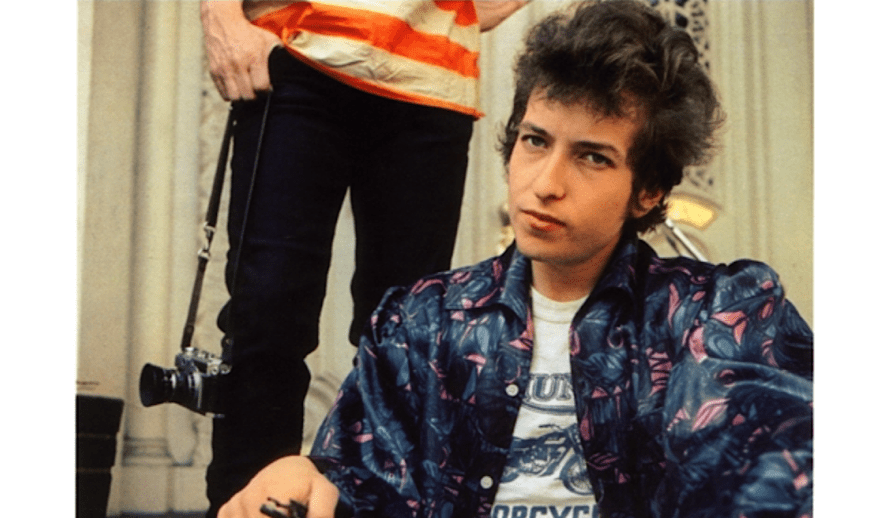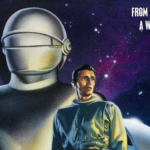Table of Contents
Video Version of this Article
Photo: Songwriters As Prophets
Doomsday Prophecies After The Twentieth Century
CS Lewis once wrote about the atomic bomb: “They may break our bodies (a microbe can do that) but they need not dominate our minds.” He proposed that misery and certain death have always been a part of the human experience, and the dignified response to something like the threat of nuclear war would involve carrying on with “sensible and human things–praying, working, teaching, reading…not huddled together like frightened sheep and thinking about bombs.” And yet, the sense that the end of the world could arrive more suddenly than was ever possible before has pervaded pop culture, and how could it not?
Things to do:
- Subscribe to The Hollywood Insider’s YouTube Channel, by clicking here.
- Limited Time Offer – FREE Subscription to The Hollywood Insider
- Click here to read more on The Hollywood Insider’s vision, values and mission statement here – Media has the responsibility to better our world – The Hollywood Insider fully focuses on substance and meaningful entertainment, against gossip and scandal, by combining entertainment, education, and philanthropy.
Today, we’re looking at songs that anticipate the end of the world. Some of them deal directly with the threat of nuclear war, some take a more prophetic approach, and still, others hone in on the fear that the end has already begun. Though CS Lewis is probably right in a practical sense, these songs about the end of the world remind us of why the apocalypse stimulates the minds of artists and musicians.
Songwriters – So Many Songs and Not Enough Time
Partly for brevity, I don’t include songs where the described end is the nihilistic collapse of the artist’s values. That includes “The End” by The Doors and “No Church In The Wild” from Jay-Z and Kanye’s Watch The Throne album. I don’t include songs like “The End of the World,” famously performed by Skeeter Davis, because despite the title it’s a song about an ended relationship. I also filtered out songs that use nuclear energy as a sexual metaphor, or songs like Muse’s ‘Supermassive Black Hole’ that do something similar with omens of the end times.
Related video: Come Behind The Scenes of ‘Elvis’ | Austin Butler, Tom Hanks and Baz Luhrmann
Related article: MUST WATCH – The Hollywood Insider’s CEO Pritan Ambroase’s Love Letter to Black Lives Matter – VIDEO
How I Learned to Start Worrying and Fear the Bomb
Nuclear anxiety still tugs at us. Every political conflict between major world powers has behind it the possibility of nuclear war. That fear held particular sway, since the 1950s. During the height of at home paranoia and panic McCarthyism, also grew up. Sons of the Pioneers faced the issue of “Red Terror” and nuclear threats head-on with “Old Man Atom.” This witty number uses wordplay to reiterate its anti-bomb message as many times as it takes. Provocative lines like “I hold this truth to be self-evident, that all men may be cremated equal” wound up getting the songwriters blacklisted.
While the blacklisting of that decade faded away, the anxiety didn’t. In contrast to the sermon delivered by Sons of the Pioneers, Sun Ra recorded a stripped-down track titled “Nuclear War.” Over a minimal jazz groove, Sun Ra repeats what should be a disarming phrase until it’s almost numbing. “They’re talkin’ about / Nuclear war / If they push that button / Your a** got to go.” The phrase subtly morphs across the song, and the groove becomes steadily more frantic until simmering down to a quiet series of goodbyes. If you want to take the entire emotional journey through each part of your nuclear anxiety, this is the track for you.
Related video: Come Behind The Scenes of ‘Elvis’ | Austin Butler, Tom Hanks and Baz Luhrmann
The End Times, They Are A-Changin’
Most apocalyptic songs don’t focus as directly on nuclear war as “Old Man Atom” or “Nuclear War,” but plenty of songs refer to the atom bomb as an implicit harbinger of the end. Nuclear anxiety is prevalent throughout comic books, movies, and music. The mushroom cloud has irrevocably and necessarily altered how we imagine the apocalypse.
Perhaps the clearest example in music of this imagery is “99 Luftballons,” by Nena. The song imagines a world war breaking out after a government tasks its fighter jets on a bunch of balloons, mistaking them for a threat. The meaning is unmistakable. The atomic bomb has become a fear. It alone could invite world War III.
“London Calling” by The Clash envisions Armageddon as a mix of environmental crisis and worldwide war. The haunting “nuclear era” in the song includes people crawling out of cupboards and engines breaking down in dying wheat fields. From the heart of “drowning” London, the song calls out to the rest of the world: “zombies of death, quit holding out and draw another breath.” It’s a warning cry, a call to action, and borrows its title directly from the BBC broadcasts that kept the English citizenry updated during their most dismal times in WWII.
Related article: A Tribute to Johnny Depp: The Actor and Musician Who Defined Range
Related video: EVOLUTION: Every Johnny Depp Role From 1984 to 2020, All Performances Exceptionally Poignant
Related article: A Tribute to the Hero & President Volodymyr Zelenskyy: Comedian/Actor, Ukraine’s President and Heroic Leader
Prince unburdens himself with similar concerns with references to a purple sky in a number of his songs, signaling the end of the world. In “1999,” Prince wakes up on judgment day and decides to party. “1999” differs from other end-of-the-world-so-let’s-party songs in that its judgment day is not an imagined one. “Everybody’s got a bomb / We could all die any day,” he sings, deciding to party in the face of it. At the end of the song a young girl asks, “Mommy, why does everybody have a bomb?” Prince is addressing very specific anxieties in this dancehall hit.
Taking a trick from The Clash, Radiohead titled the song “4 Minute Warning” after a British alert system developed during the Cold War. The alert has gone out at the top of the song, and the protagonist cowers from it: “This is just a nightmare / Soon I’m gonna wake up.” A lot of the song’s power comes from not having to go into detail about the threat itself. It names “the bombers,” but the rest of the song describes the protagonist’s fear, and the fearful running of everyone else. This song resonates with the nuclear anxiety that has become such a part of popular consciousness that it needn’t be spoken.
Revelations! Songs of Biblical Proportions
Other songs have stuck to the biblical script. In the tradition of texts like the Gregorian chant “Dies Irae,” these songs borrow from Revelations to tell of a swift and all-encompassing judgment day.
In “The Man Comes Around,” Johnny Cash opens up with a quote directly from Revelations before describing the scene when the judge of everyone, or “the man,” makes his rounds deciding who is unjust and who is righteous. The song is rich with biblical references, and Cash delivers his prophetic message with disarming frankness. In the category of songs that anticipate judgment day, it doesn’t get more explicit than “The Man Comes Around.”
Ms. Lauryn Hill takes a similar approach with the words to “Final Hour,” a track that subverts the worldly ambitions that are often featured in hip-hop. “You could get the money / You could get the power / Keep your eyes on / the final hour.” The mantra that makes up the chorus comes between verses that pair hip-hop braggadocio with a god-fearing perspective, as Ms. Lauryn Hill points to how judgment day ought to color our understanding of material life.
Related article: The Hollywood Insider’s CEO Pritan Ambroase: “The Importance of Venice Film Festival as the Protector of Cinema”
Related article: The Masters of Cinema Archives: The Hollywood Insider Pays Tribute to ‘La Vie En Rose’, Exclusive Interview with Director Olivier Dahan
Related article: – Want GUARANTEED SUCCESS? Remove these ten words from your vocabulary| Transform your life INSTANTLY
Related video: EVOLUTION: Every Tom Cruise Role From 1981 to 2021, All Performances Exceptionally Poignant
Still, other songs use the imagery in the style of Revelations to foretell a more secular judgment day. Bob Dylan does so with “A Hard Rain’s A-Gonna Fall”. Dylan employs the listing of surreal images with numbers attached which is a trademark of not only Revelations but religious texts in general. Reverential numbers are recognizable such as the numbers Seven and forty. There are too many examples in the lyrics to list here, Dylan being a singularly voluble songwriter, but the gist is that things are mayhem and the “blue-eyed son” in the song chooses to sing out his song as the world ends.
In a similar fashion, David Bowie lists a series of strange images that are thrown into sharp relief by the impending end of everything. “Five Years” imagines a scenario where the end of the world has been projected to be five years from today, and Bowie starts absorbing every detail around him, singing “My brain hurt like a warehouse / It had no room to spare.” The secular world, in the context of the apocalypse, starts to look like Revelations. Lines like “A cop knelt and kissed the feet of a priest, and a queer threw up at the sight of that” contain worlds within them.
“That’s great, It starts with an earthquake,” declares Michael Stipe at the beginning of “It’s The End Of The World As We Know It.” The frantic R.E.M. hit has become something akin to a meme, but it still holds weight. It has the soundscape of a building falling around you, and images like “the Furies breathing down your neck” mix with contemporary references to pop culture, modern governance, and even slash-and-burn agriculture. It simultaneously feels all-encompassing, and like something your best friend would yell at you while the earthquake rumbles.
Whether directly biblical or styled after biblical text, these songs all urgently point to the end as a guidepost for the present. envisioning a sweeping apocalyptic event that keeps everything else in perspective.
Related article: EVOLUTION: Every Henry Cavill Role From 2001 to 2021, All Performances Exceptionally Poignant
Related article: EVOLUTION: Every Chris Evans Role From 1997 to 2020, All Performances Exceptionally Poignant
Related article: #metoo Revolution: Powerful Questions That Need Answers
Related article: FACT-CHECKED Series: Timothee Chalamet and 32 Facts about The Young Superstar
What If the End Is Already Here?
To wrap things up, these are two songs that imagine the end of the world as a much slower, more dystopian affair. They are certainly not alone in taking this approach, but these songs came out in the past few years, and happen to feel very in touch with the quiet anxiety that overtook so many people during the height of the pandemic.
“I Know The End” by Phoebe Bridgers, who captures that sense of being in a post-apocalyptic, nowhere place that can come on suddenly when you’re driving somewhere you don’t know or seeing your home from the view of an outsider. “Not even the burnouts are out here anymore” she sings in the quieter first half of the song, which takes place in a nondescript, melancholic suburbia. The song picks up with a drive to the open highway, past a list of images reminiscent of the apocalypse lists mentioned in the previous section of this article: “A slaughterhouse / An outlet mall / Slot machines / Fear of God.” Out in the open, feeling detached from everything, she finds a billboard that says “The End Is Near,” and, surveying the desolate landscape around her, agrees.
In “I Know The End,” the apocalyptic landscape is the present day, and the sense of doom comes from awakening to it. A phrase from Pink Floyd comes to mind: “hanging on in quiet desperation.” Phoebe Bridgers has performed a cover of the next song, in which Bo Burnham too is hanging on and quietly desperate.
“That Funny Feeling,” the song at the end of Burnham’s Netflix special, ‘Inside,’ shares the sentiment that we are already in the end times, and have been since the beginning. “Twenty thousand years of this / Seven more to go,” he sings in the middle of a collection of subtly disconcerting things like “discount Etsy agitprop” and “obeying all the traffic laws in Grand Theft Auto V.” He waxes prophetic at the end of the song, singing “It’ll be over soon / You wait / Just you wait.”
Related article: MUST WATCH – The Hollywood Insider’s CEO Pritan Ambroase’s Love Letter to Black Lives Matter – VIDEO
The End
Even if you don’t wrestle with anxieties about the atomic bomb, you have probably felt at one point or another that certain things in the world feel dystopian, and that the end may already be arriving, little by little. If so, you are not alone, and quite a few musicians have taken that sense of doom to task to work through those anxieties with us.
Whether warning us against mutually assured destruction, defying the end with the will to sing and dance until it happens, or confiding in us a shared sense of dread and terror, these songs tap into a perennial anxiety that we all share.
By Kevin Hauger
Click here to read The Hollywood Insider’s CEO Pritan Ambroase’s love letter to Cinema, TV and Media. An excerpt from the love letter: The Hollywood Insider’s CEO/editor-in-chief Pritan Ambroase affirms, “We have the space and time for all your stories, no matter who/what/where you are. Media/Cinema/TV have a responsibility to better the world and The Hollywood Insider will continue to do so. Talent, diversity and authenticity matter in Cinema/TV, media and storytelling. In fact, I reckon that we should announce “talent-diversity-authenticity-storytelling-Cinema-Oscars-Academy-Awards” as synonyms of each other. We show respect to talent and stories regardless of their skin color, race, gender, sexuality, religion, nationality, etc., thus allowing authenticity into this system just by something as simple as accepting and showing respect to the human species’ factual diversity. We become greater just by respecting and appreciating talent in all its shapes, sizes, and forms. Award winners, which includes nominees, must be chosen on the greatness of their talent ALONE.
I am sure I am speaking for a multitude of Cinema lovers all over the world when I speak of the following sentiments that this medium of art has blessed me with. Cinema taught me about our world, at times in English and at times through the beautiful one-inch bar of subtitles. I learned from the stories in the global movies that we are all alike across all borders. Remember that one of the best symbols of many great civilizations and their prosperity has been the art they have left behind. This art can be in the form of paintings, sculptures, architecture, writings, inventions, etc. For our modern society, Cinema happens to be one of them. Cinema is more than just a form of entertainment, it is an integral part of society. I love the world uniting, be it for Cinema, TV, media, art, fashion, sport, etc. Please keep this going full speed.”
More Interesting Stories From The Hollywood Insider
– Want GUARANTEED SUCCESS? Remove these ten words from your vocabulary| Transform your life INSTANTLY
– A Tribute to Martin Scorsese: A Complete Analysis of the Life and Career of the Man Who Lives and Breathes Cinema
– Do you know the hidden messages in ‘Call Me By Your Name’? Find out behind the scenes facts in the full commentary and In-depth analysis of the cinematic masterpiece
– A Tribute To The Academy Awards: All Best Actor/Actress Speeches From The Beginning Of Oscars 1929-2019 | From Rami Malek, Leonardo DiCaprio To Denzel Washington, Halle Berry & Beyond | From Olivia Colman, Meryl Streep To Bette Davis & Beyond
– In the 32nd Year Of His Career, Keanu Reeves’ Face Continues To Reign After Launching Movies Earning Over $4.3 Billion In Total – “John Wick”, “Toy Story 4”, “Matrix”, And Many More
songwriters, songwriters, songwriters, songwriters, songwriters, songwriters, songwriters, songwriters, songwriters, songwriters, songwriters, songwriters, songwriters, songwriters, songwriters, songwriters, songwriters, songwriters, songwriters, songwriters, songwriters,










